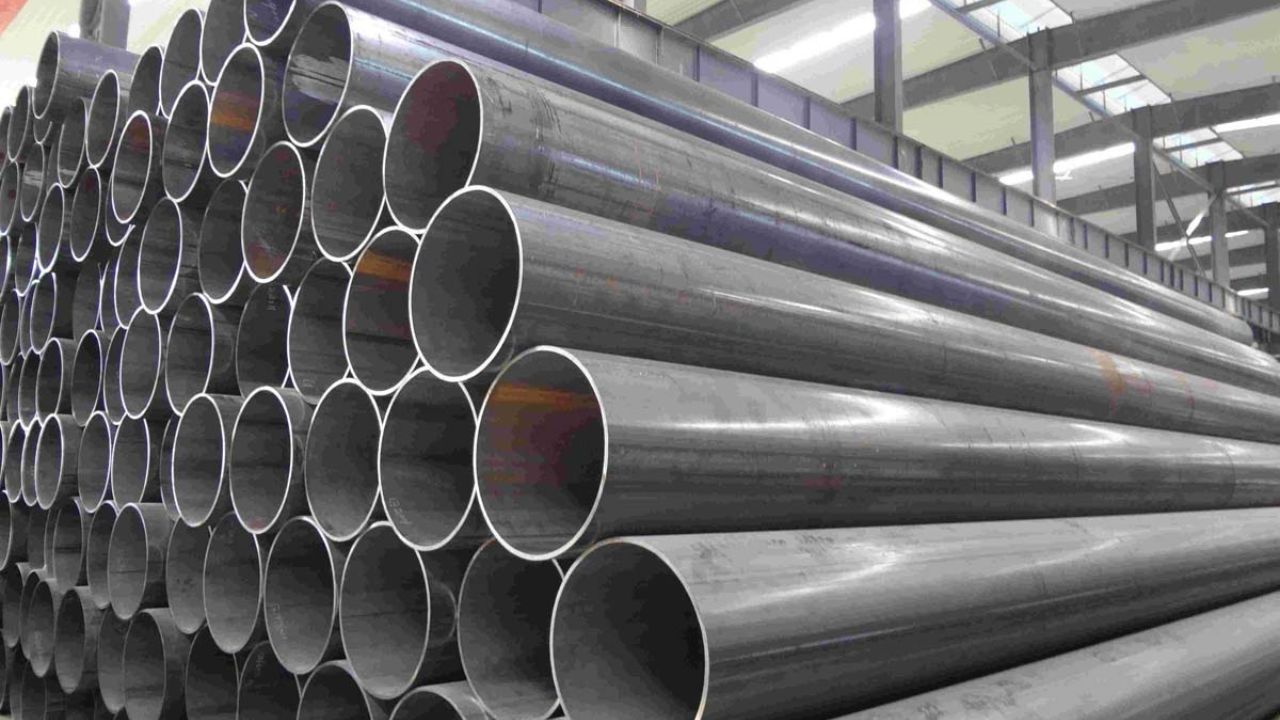The automotive industry requires materials that combine strength with reliability and affordability alongside versatility. Electric Resistance Welded (ERW) pipes have become an essential material choice for multiple applications within this sector. The automotive manufacturing process benefits from ERW pipes because of their exceptional mechanical properties which provide multiple advantages. This article examines how ERW steel pipe delivers essential advantages to automotive applications.
Exceptional Strength and Durability
ERW pipe manufacturing relies on high-frequency resistance welding techniques to produce pipes with uniform welding seams. The welding technique utilized to produce ERW pipes strengthens their material form so it can handle demanding mechanical forces and excessive pressure. The durability of ERW pipes helps automotive components including frames chassis and axles maintain safety and reliability throughout vehicle operation. The absence of detectable weld defects in ERW pipes supports their extended operational lifespan by enabling effective performance under challenging conditions. Extended service length with diminished maintenance expenses characterizes the durability of automotive components because of ERW pipe construction.
Lightweight Construction
The modern automotive industry demands lightweight vehicles because it leads to better fuel economy and lower environmental emissions. The strength requirements of ERW pipes match their lightweight construction characteristics to deliver an optimal solution. The manufacturing process enables precise control of ERW pipe dimensions which allows producers to create products that meet exact weight specifications for lightweight automotive applications. The weight reduction capability of electric vehicles (EVs) becomes more important because it improves battery performance while extending driving distance.
Cost-Effectiveness
ERW pipe manufacturing processes operate with exceptional efficiency which leads to reduced production expenses when compared to steel pipes made through different methods. The combination of hot-rolled steel coils with automated high-frequency welding produces minimal material waste throughout the production process. The automotive sector needs cost reductions to preserve competitive market prices. Manufacturers who use ERW pipes gain access to superior quality performance alongside economic efficiency in their production lines.
High Customizability
The automotive industry needs components that must fit precise dimensional requirements and unique shapes. The manufacturing process of ERW pipes enables producers to create pipes in diverse dimensions multiple wall thicknesses and extended lengths. ERW pipes adapt to different vehicle part requirements through their ability to produce round, square, and rectangular profiles. The flexible nature of ERW pipes enables manufacturers to design innovative structural elements for exhaust systems and fluid transport systems which improve both functionality and appearance in modern automobiles.
Corrosion Resistance
The lifespan and operational capabilities of automotive components suffer major deterioration from corrosion damage. The resistance to rust and environmental degradation of ERW pipes increases due to coating and galvanizing processes. The added protection system works best for components that face exposure to moisture road salt and temperature variations such as exhaust systems and undercarriage components. ERW pipes provide high resistance to corrosion which allows vehicles to preserve their essential support capabilities across various challenging environments thereby minimizing common damage-induced equipment breakdowns.
Superior Weld Quality
ERW pipe production through high-frequency welding generates weld seams that remain smooth and show consistent quality while producing minimal defects. The exceptional weld quality of ERW pipes enables them to withstand automotive application stress and strain without breaking. The weld’s continuous surface appearance improves component aesthetics by eliminating the visual impact of joints that would otherwise mar designs.
Environmental Benefits
The automotive industry now places sustainability at the forefront and ERW pipes fulfill this requirement. The manufacturing process of ERW pipes uses minimal energy resources while producing fewer production byproducts than other pipe manufacturing approaches. Steel’s ability to undergo recycling offers an environmentally friendly benefit to ERW pipes which reduces industrial waste while boosting circular economy practices.
Wide Range of Applications in Automotive Manufacturing
ERW pipes are used in various automotive components, including:
Chassis and Frames:
Their strength together with lightweight properties makes them ideal for vehicle structural support.
Exhaust Systems:
The corrosion-resistant protective surface applied to ERW pipes maintains longstanding durability within exhaust systems that handle both intense heat conditions and corrosive fumes.
Axles and Suspension Systems:
ERW pipes demonstrate outstanding load-bearing properties which make them reliable for critical applications.
Fluid Transport Systems:
ERW pipes transmit fuel and coolant fluids for operational efficiency in vehicles.
Conclusion
The automotive manufacturing sector depends heavily on ERW pipes because these materials deliver exceptional strength alongside durability lightweight design capabilities and cost-efficient performance. The combination of high customization options and excellent weld quality along with corrosion resistance properties makes ERW pipes ideal for multiple automotive applications. The automotive industry’s future development will heavily depend on ERW pipes because they show potential to expand their role in building advanced sustainable vehicles.
